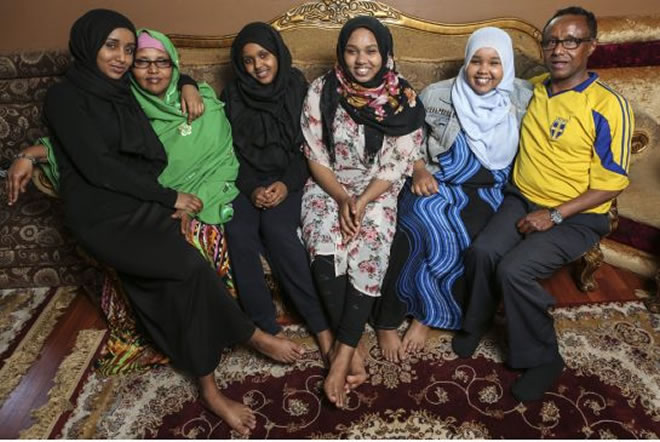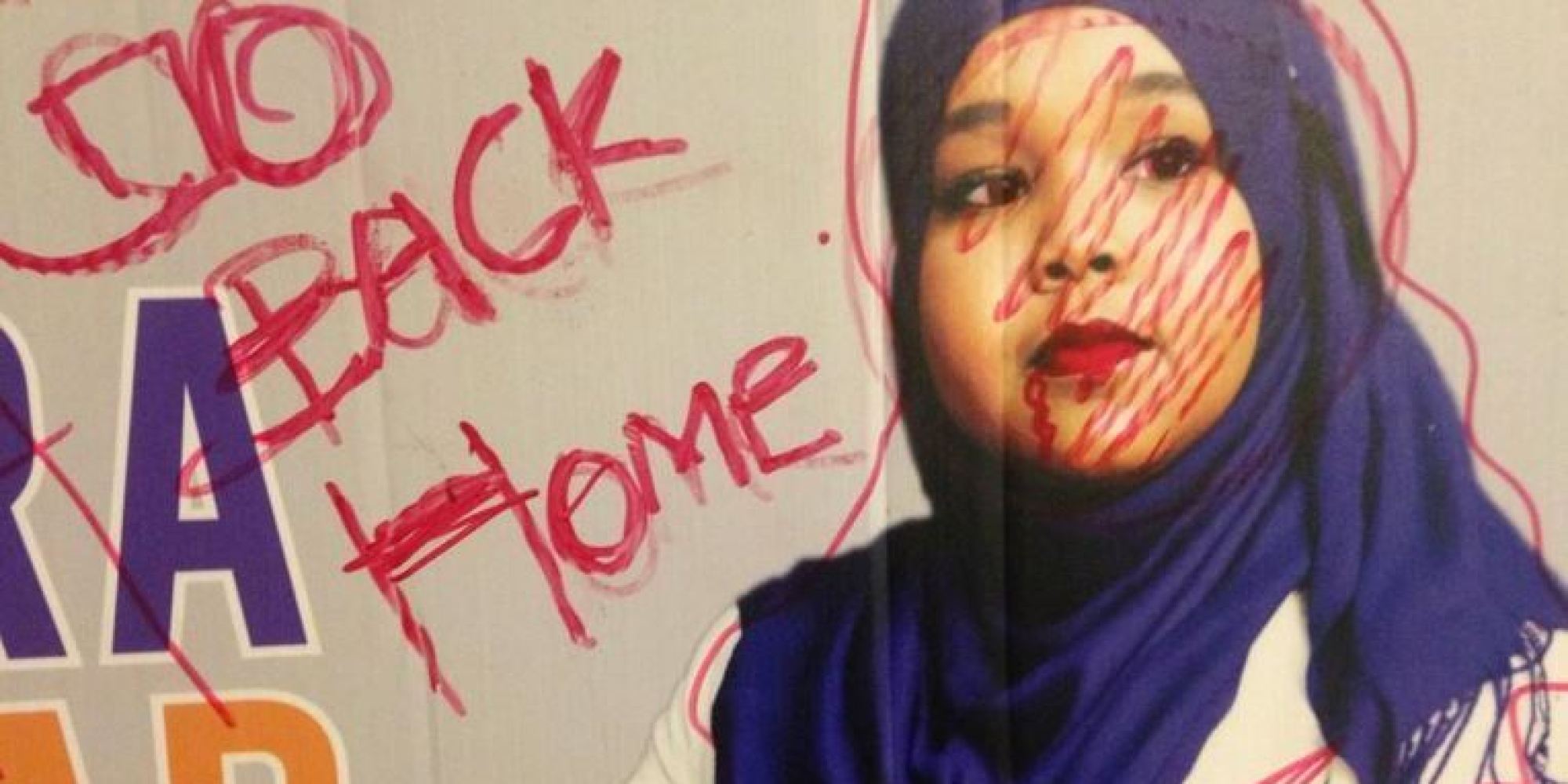
You might recall Munira, daughter No. 3. She was one of two tenants elected to the Toronto Community Housing Corp.’s board four years ago, when she was 18. She ran for city council against Rob Ford (open Rob Ford’s policard) last fall. She just graduated from Ryerson University’s criminology program and plans to apply to law school.She is not an anomaly in her family. She’s the norm.Daughter No. 4, Maymun, just finished her third year of a bachelor of arts at York. She was Munira’s campaign manager. In their North Etobicoke neighbourhood, she’s known for coaching the local baseball team.
Then there’s Ibada, 19. She just finished her second year at York in human resources. Their high school gave her the community spirit award for volunteering 3,000 hours, mostly at the food bank.
Daughter No. 6 is Idil. She’s volunteered at the food bank too. She’s also an A-student. On Wednesday evening, she received a $4,000 post-education scholarship from Scadding Court Community Centre and TCHC for not just her grades, but her community activism.
She was the fourth Abukar sister to get an “Investing in our Diversity” scholarship.
You can see why I was driving up to Scarlettwood Court, near Lawrence Ave. W. and Scarlett Rd.
“It was Mom,” said Munira, curled on the couch in the family’s subsidized townhouse. “She was sitting on three parent-teacher councils when we were going to three different schools, and she chaired two at the same time!”
Her surrounding sisters nod their heads in unison.
Asha Mohamed, their mom, smiles broadly. She followed her husband to Canada 25 years ago, with their eldest two children. They were refugees from Mogadishu, where the civil war was erupting.
Her community activism was triggered by pizza — pepperoni pizza, that none of her children could eat during their primary school’s pizza lunch days. “I went to the parent council to ask them why they don’t order halal pizza,” she said. The council was unconvinced, so she brought some samples to the next meeting. “That’s why, right now, Westmount (Junior School) only eats halal,” she said.
The council was unconvinced, so she brought some samples to the next meeting. “That’s why, right now, Westmount (Junior School) only eats halal,” she said.
That wasn’t that, though. It rarely is. “I wanted to understand people and help them understand why I dress like I dress like I do, what I eat. I wanted to share with them,” said Mohamed, 51. So she organized the school’s international night, where kids would travel from Diwali to Chinese New Year, Rosh Hashanah to Eid. It too became tradition.
One summer, maybe nine years ago, a Toronto Community Housing representative asked for Mohamed’s help organizing a community barbecue — halal of course. She went door to door, inviting neighbours. She saw many were financially strapped, so she and some other women approached Walmart and Staples and secured donations. Every family left the barbecue with a bag of school supplies.
In each case, Mohamed’s children formed her logistics team — making up posters, setting up tables, doling out bags. “When something needed to be done, she’d say ‘I have nine kids, that’s 18 pair of hands.’ I didn’t call it volunteering, I called it being volun-told,” Munira said. “At a certain age, we appreciated being involved.”
“When something needed to be done, she’d say ‘I have nine kids, that’s 18 pair of hands.’ I didn’t call it volunteering, I called it being volun-told,” Munira said. “At a certain age, we appreciated being involved.”
The neighbourhood food bank where Ibada still volunteers was created, in part, by her mom.
Mohamed became a tenant representative at TCHC the year before Munira ran for the board.
“I’m proud. The government of Canada allowed me to come here as a refugee. That’s why I give back to my community,” she said. “I want to teach my kids to help people who need it. Give back to your community what you have. If you don’t have money, give back muscle.”
Through all this, the Abukar family survived on the salary of Aden Abukar, a cab driver.
Muscle would only get them so far. It’s safe to say the scholarships made the difference between a few girls going to university and all of them going.
The scholarships were created in 2002 in response to racist graffiti appearing around Alexandra Park, near Bathurst and Dundas. The idea was to combat hate with opportunity, and to help build role models in marginalized communities who would slowly change the city’s perception of race.
By my estimation, it’s working beautifully.
“It wasn’t just the money,” said Munira. “The scholarship gave me the confidence that someone else believed in me and believed I could . . . make a difference in the world.”
That first year, there were two recipients from Alexandra Park. This year, there are 46 from across the city.































